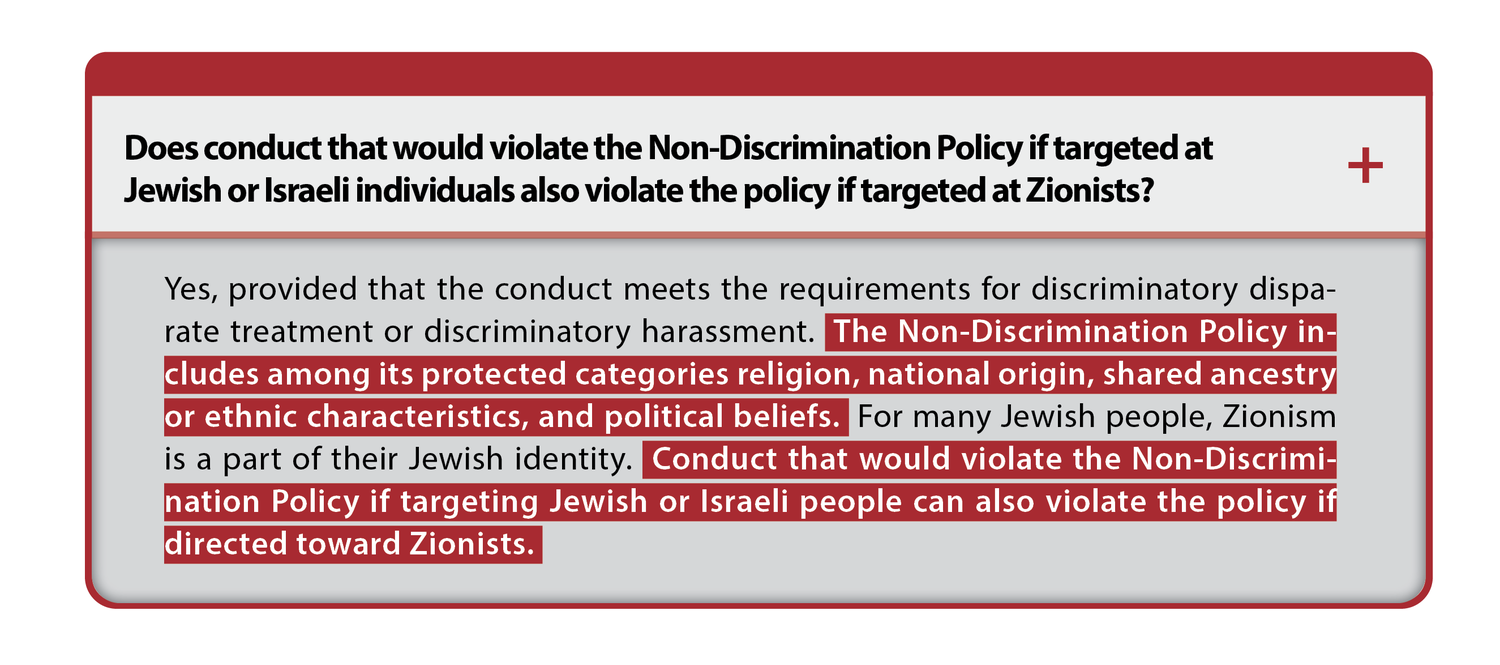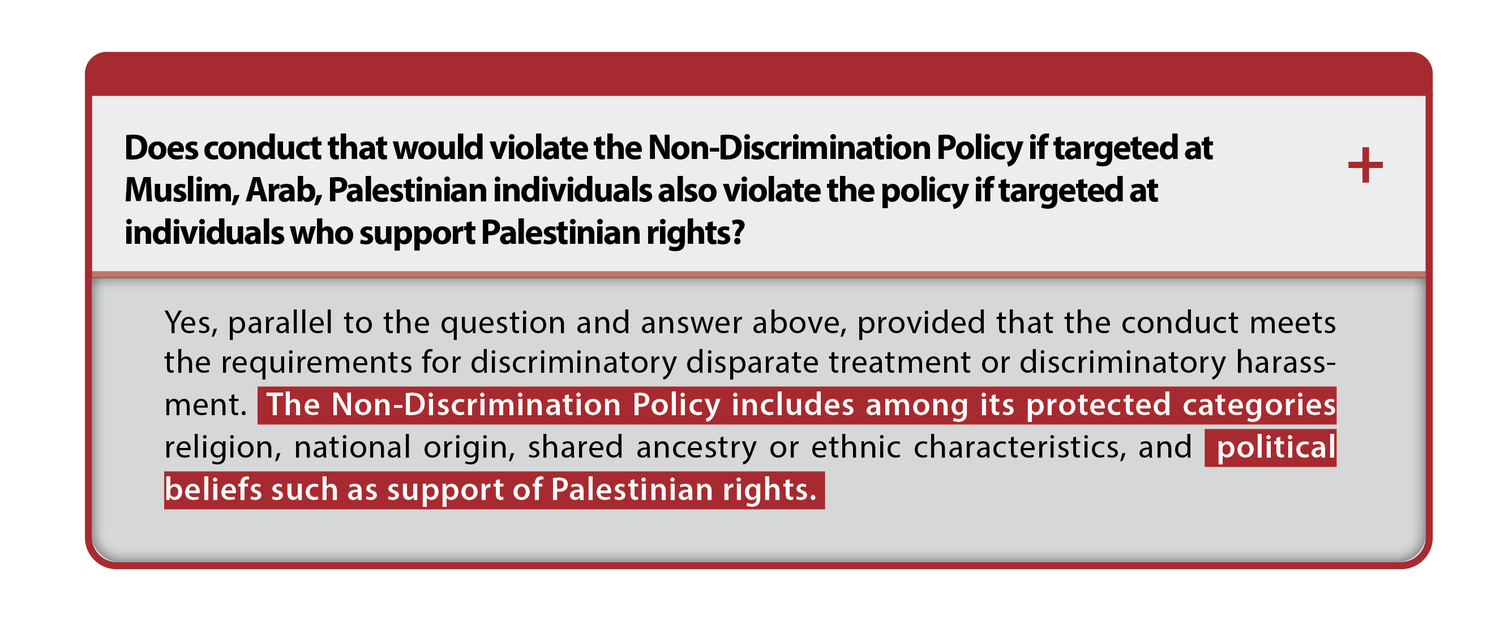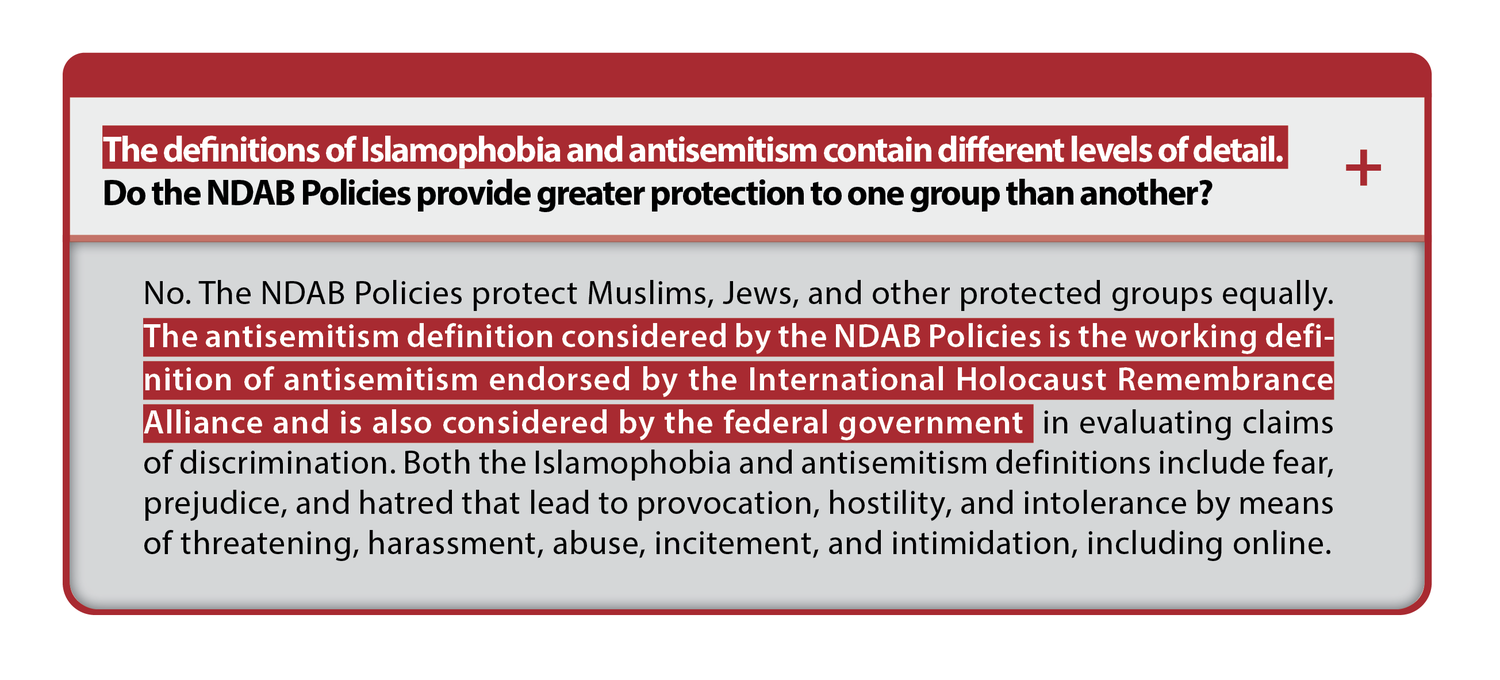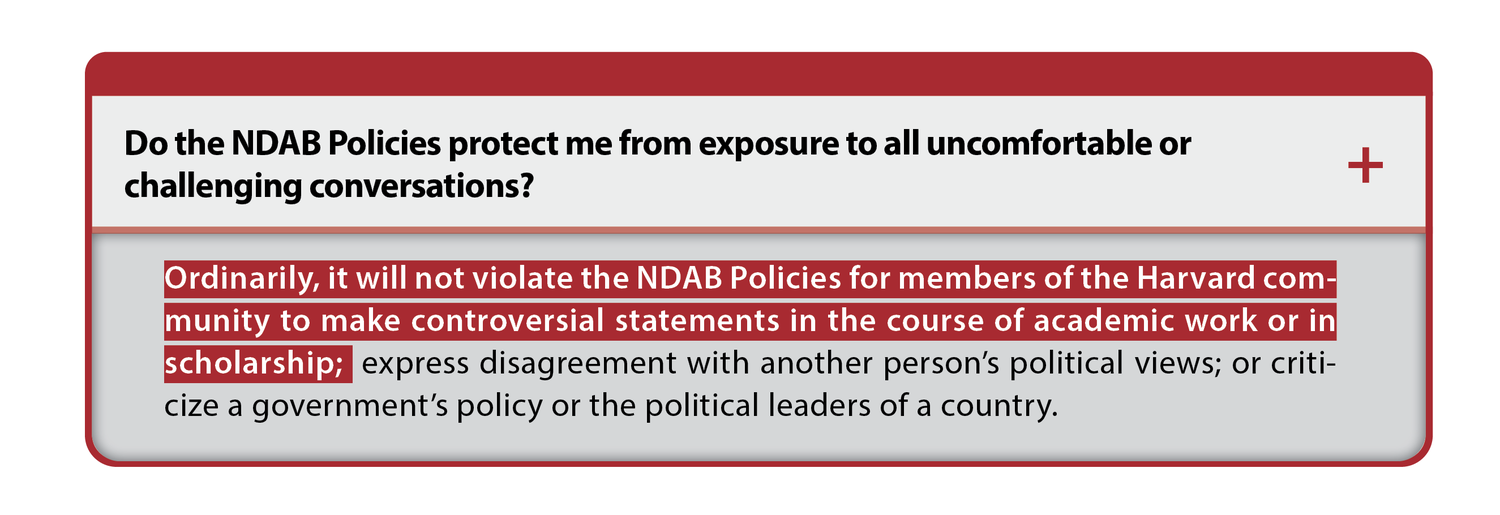After Settlements, Harvard Revamps Non-Discrimination Guidelines With Focus on Israel-Palestine Conflict
Harvard dramatically expanded its guidance for applying its Non-Discrimination and Anti-Bullying Policies and Procedures on Friday, specifying protections for Zionists and defining Islamophobia and antisemitism.
Harvard’s Office for Community Conduct dramatically expanded its guidance for applying the University’s Non-Discrimination and Anti-Bullying Policies and Procedures on Friday, specifying protections for Zionists and defining Islamophobia and antisemitism.
The update fulfills a key condition of two agreements that Harvard reached to settle lawsuits filed by six students from Students Against Antisemitism and the Brandeis Center for Human Rights Under Law and Jewish Americans for Fairness in Education.
The NDAB “Frequently Asked Questions” webpage, which quadrupled in length on Friday, now includes 21 new questions and answers.
The page lists both “advocating genocide” and “accusing an individual of supporting genocide” based on protected characteristics alone as possible violations of the NDAB policy.
According to the updated policies, political beliefs are protected categories, and speech can be considered discriminatory harassment if it individually targets Zionists, anti-Zionists, non-Zionists, and people who support Palestinian rights.
Conduct must be both “severe or pervasive” and “so objectively offensive that it denies access to the workplace or educational environment” to be considered harassment under the policy.
The page includes six questions and answers specifically to address antisemitism, Islamophobia, zionism, and anti-Arab discrimination.
The words ‘antisemitism’ and ‘antisemitic’ appear 14 times in the updated document. The word ‘racist’ appears once, and ‘racism’ does not appear at all.
Harvard also incorporated revisions agreed upon as part of a Jan. 17 resolution to a federal complaint that accused the University of failing to protect Arab, Muslim, and Palestinian students from harassment and intimidation.
The complaint — filed by the Muslim Legal Fund of America — was submitted to the Department of Education’s Office for Civil Rights in January 2024 and resolved just three days before President Donald J. Trump took office.
Upon reviewing Harvard’s NDAB policy, the OCR found that in addition to failing to respond effectively to student complaints of a “hostile environment” based on national origin, “the University’s policies and procedures for receiving and responding to Title VI harassment appear not to be sufficient.”
Christina A. Jump, Civil Litigation Department Head at the Muslim Legal Fund of America, said that the updated FAQs do not materially change the NDAB, which were established in 2023.
“These still revert back to and rely on 2023 policies and that’s just not going to cut it,” Jump said.
The University has four months to submit an updated version of the NDAB Policies and Procedures to the OCR for approval.
Jump also said that the updated FAQ has “some very careful wordplay” and provided a larger amount of detail upon describing antisemitism in comparison to Islamophobia.
A University spokesperson did not immediately respond to a request for comment Sunday evening.
The new NDAB Policies and Procedures FAQ page delineates that the policy protects Harvard affiliates who have faced “discriminatory disparate treatment or discriminatory harassment based on antisemitism and Islamophobia.”
Harvard officials also added the International Holocaust Remembrance Association’s definition of antisemitism — a key provision in the lawsuit settlements — in addition to the United Nations’ definition of Islamophobia.
University spokesperson Jason A. Newton wrote in a statement that the decision to include the definition of ‘Islamophobia’ was “consistent with the University’s ongoing commitment to addressing Islamophobia in our community.”
In the lawsuit settlements, the University agreed to explicitly adopt the IHRA’s examples of antisemitism that include labeling “the existence of a State of Israel is a racist endeavor.”
The FAQ page qualifies that the University will consider such examples “to the extent that those examples might be useful in determining discriminatory intent.”
The updated policy explicitly acknowledges the “different level of detail” included in the definition of Islamophobia and antisemitism, but says that the groups are protected equally. The FAQ also states that the IHRA definition for antisemitism is the definition used by the OCR.
Alexander “Shabbos” Kestenbaum, a lead plaintiff of Students Against Antisemitism — one of the two groups that filed an antisemitism lawsuit against the University — wrote in a statement that he was “delighted” by the changes.
Kestenbaum, who chose not to settle his case against Harvard, wrote that “a significant amount of what is on the NDAB list were already prohibited. When Professors and students violated them, there were no consequences.”
Kestenbaum wrote that he viewed the section that addresses Zionism as “a begrudging recognition that an attachment to the land of Israel is central to the identity of the Jewish People.”
The section cites examples that could violate the policies, including “applying a ‘no Zionist’ litmus test for participation in any Harvard activity” and the conspiracy that “Zionists control the media.”
University officials argue the policies are consistent with the University-Wide Statement on Rights and Responsibilities, do not protect affiliates from “all uncomfortable or challenging conversations,” and have been “carefully crafted” not to constrict academic freedom in the FAQ.
University spokesperson Jason A. Newton wrote in a Jan. 23 statement that “the University stands strongly for reasoned dissent and the free exchange of ideas, beliefs, and opinions.”
The University’s NDAB policies “make clear that harassment or discrimination against any member of the community is unacceptable,” Newton wrote.
Despite including the question “Can pure academic speech violate the Non-Discrimination Policy,” the guidelines do not explicitly address whether academic speech can violate the policy.
A separate answer asserts that controversial statements in academic work or scholarship “ordinarily” will not be violations.
“Discriminatory disparate treatment is singling out or targeting an individual(s) for less favorable treatment because of their protected category,” according to the web page.
Jump said that the academic speech answer did not reassure her that certain academic arguments on the conflict in Israel and Palestine will not be prohibited.
“That’s the only example I saw where there’s not a yes or no right afterwards,” Jump said.
—Staff writer Annabel M. Yu can be reached at annabel.yu@thecrimson.com. Follow her on X @annabelmyu.
—Staff writer Sheerea X. Yu can be reached at sheerea.yu@thecrimson.com. Follow her on X @_shuhree_.





